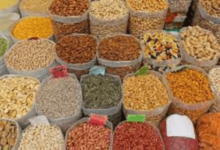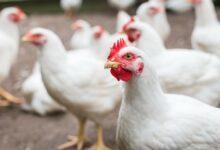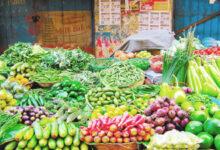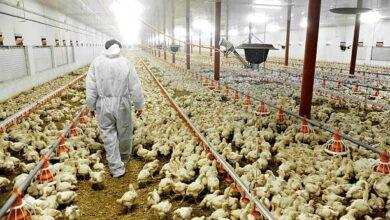
Cassava Processing Business in Nigeria
In this article, we will discuss on how to start cassava processing business In Nigeria. Here you will information about the capital needed, equipment, process, packaging and marketing of the final cassava products.
My experience as the son of the soil, shows that there is no family in Nigeria that does not plant cassava, but out of the many families that cultivate the crop in, only a very few take this as serious business.
👉 Relocate to Canada Today!
Live, Study and Work in Canada. No Payment is Required! Hurry Now click here to Apply >> Immigrate to CanadaThus, this article shows how you can make your cassava cultivation more business oriented. Relax and read as I give you detailed analysis of the required capital, specific description of the necessary equipment, practical steps for the processing, packaging techniques and the effective marketing strategies for cassava business in Nigeria.

You are sure going to make reasonable profit from your cassava business, all things being equal because, there is neither family nor tribe in Nigeria whose cassava product such as garri, fufu, tapioca, starch, animal feed or ethanol, is not a staple.
How Profitable is Cassava Processing Business ?
Profitability in cassava processing business in Nigeria is possible because, despite the fact that every home in Nigeria use cassava product, it also export to other African countries, making the crop one of the most exportable commodities in the country.
Read: How to Export Goods from Nigeria to other countries
Nevertheless, to break through in the cassava processing business, you have to consider the following:
Capital Needed to Start Cassava Processing Business in Nigeria:
the first issue for any business in Nigeria is capital, but only after carrying out your feasibility study to be conversant with the pros and cons of the business you are venturing to.
Cassava farming is ordinarily cheap to venture into, but commercializing it can run into relatively huge amount of money, depending on the location, quantity of what you want to produce, the technique you will use in processing your products, the means of packaging and your marketing strategy.
The foremost thing to look out for while addressing the issue of capital is to acquire a sizeable farmland, and if you are a hard-working person, you are almost there.
👉 Relocate to Canada Today!
Live, Study and Work in Canada. No Payment is Required! Hurry Now click here to Apply >> Immigrate to CanadaEquipment needed for Cassava Processing Business in Nigeria
Unlike before that we relied upon local and crude methods of processing cassava, like peeling, manual grating, tying with stick to dewater, sieving with mesh and frying under intense heat, cassava processing has assumed a more modernized method nowadays, with the introduction of technical equipment and machinery.
Nowadays a machine can perform all the tedious and drudgery works in cassava production in in minutes or just a few hours, something that used to take a whole day or days to process.
Modern technology has played a major role in cassava production in Nigeria. This has contributed immensely to making Nigeria one of the world’s largest producers of cassava products, although garri is still sales very high across the country.
Investing in cassava processing equipment could cost huge sum of money, but the availability of cassava tubers in larger quantity makes the business even more profitable after acquiring a machine despite the cost.
The large market for cassava products within Nigeria and the entire African continent also adds to the advantage of the entrepreneur in terms of profit.
That notwithstanding, below is a list and the description of modern cassava processing equipment.
According to some cassava processing expert, ‘modern garri processing innovation is the roasting or frying pot, which is made of stainless steel and insulated with fibre glass to absorb heat from the fire’.
They give the description of other equipment as follows:
- Stainless steel hammer mill with 1tone /hour capacity, which cost about N650,000.00
- Fermentation Racks , press jack, which costs about N450,000
- Dewatering Racks with mechanical press which costs about N485,000
- Stainless steel granulator with 7.5 HP electric motor, which has the capacity of processing about 1tone/hour and costs N490,000
- Stainless steel garri roasting pot with 2HP electric motor, fibreglass insulation, exhaust pipes and stainless steel paddles. It can be heated with gas, charcoal, firewood, palm kernel shells etc. it has the capacity for processing 2tones a day and costs about 190,000.
If you calculate the total cost of the equipment, it runs into about N4,100,000 precisely, which may require longer time and effort to raise, but the result is worthwhile as the production capacity of the machines out run the cost.
Meanwhile, you don’t have to scream or be scared away from the business if you lack the resources to acquire such equipment. You can actually start with what you have and add up other machines later on as you make profit.
Process of production of Cassava
The whole process of cassava production revolves around harvesting and bringing the tubers closer to the plant. Having done that, the processing proper generally starts with peeling the tubers.
Since garri is the primary product derived from cassava in Nigeria, I will present more detailed steps of the garri making process, very similar to Bridget Olotu’s description on Daily Trust of October 2, 2015.
Harvesting: the first step is to harvest the crop from the farm. You can do this manually or by the use of harvesters.
Peeling: you can also do this manually with knife or by the help of peeling machines listed above.
Grating: i recommend modern methods by the use of various brands and grades of grating machines also listed under equipment.
Sieving: next step is sieving to arrive at the main substance to process your garri. You can do this with the use of mesh or sieving machine.
Frying: frying is the last step of the process, after which your garri is ready for packaging or consumption. There is also a machine for the frying already listed in this article to make the frying easy and speedy, especially when the cassava is in large quantity.
See Also: Yam Pounding Machine Price in Nigeria, Pictures and Where to Buy
Packaging of Cassava Products for Market
When it comes to packaging of cassava products, every producing community have their own unique way of packaging, but all practically end up in sack bags and basins of various sizes from 25-200kg.
Fufu, starch and other cassava products can be packaged in nylon bags except carry, which only go for sack bags that are air friendly to avoid rotting or fungus development.
Some communities complement it with open display of their product to attract customers.
Marketing Strategies for Cassava Products
There is already a largely available market for cassava products across Nigeria and Africa. Cassava business in Nigeria requires very little marketing effort.
What you have to do is process a high quality product, take it to the proper selling location or put up an identifiable address for buyers and that is all. Buyers will locate you right where you are.
While some communities such as the Ijebu in Western Nigeria and the Ogoja in Cross River do export their cassava products to Major cities, others like the Edo and Delta sell their products mainly by Window display advertising.
If you are familiar with the Asaba-Agbor-Benin expressway, you know what I’m talking about here. Vehicles to and from Lagos are allured to stop over and do their shopping of the attractive basins and colourful bags of garri displayed by the roadsides.
Other producers of cassava products such as the Itumbonuso and Nkari people of Akwa Ibom state prefer to sell theirs in the local markets where buyers come from far and near to buy.
Read Also: How to Start a Food Processing Company in Nigeria
Summary
The potentials for profit in cassava processing business in Nigeria is on the high side because of the suitability of soil for the crop across the country, and availability a large market and high demand for cassava products.
With a sizeable farmland, acquisition of modern equipment for planting and processing, your success in cassava business in Nigeria is guarantee as this article has shown.
Even if you have been reluctant about venturing into cassava business, the high demand for its product should be enough to motivate you into the business.
Goodluck!
Please Share!





